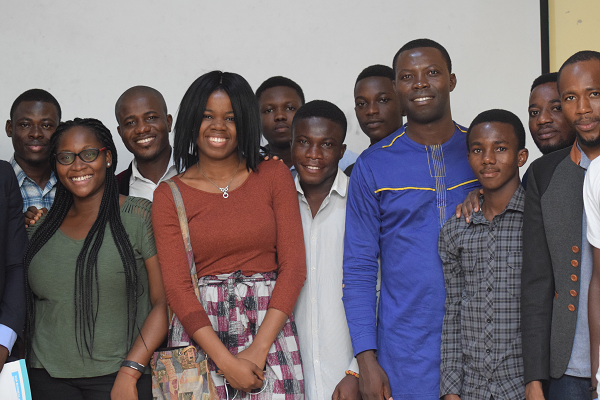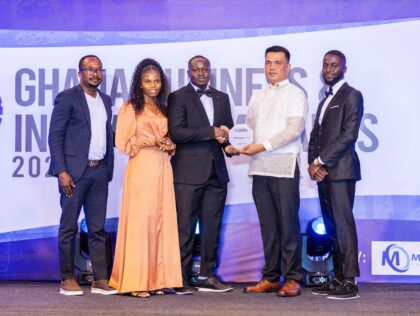Institute of ICT Professionals Ghana (IIPGH) in collaboration with Institute of Cyber Security and Information Assurance (ICIA) organized a very engaging Cyber Security Awareness Workshop and career guidance workshop at the Kwame Nkrumah University of Science and Technology (KNUST), Kumasi on 11th April 2018.
The well attended workshop made up of students and lecturers from Computer Science Department, School of Engineering and other faculties, offered participants the opportunity to learn new trends in the Cyber Security space.

The 3 hour workshop started with a short welcome address by Mr. Benjamin Odoi-Lartey an assistant lecturer in the Computer Science department of KNUST. This was quickly followed by a presentation by the Executive Director of the Institute of ICT Professionals Ghana (IIPGH) Mr. David Gowu. He used the opportunity to explain the important role professional bodies like IIPGH as a connector plays. IIPGH connects ICT professionals from government MDAs, educational institutions, corporate organizations, start-ups, investors and the civil society organizations to create a vibrant ICT ecosystem. He added that the days of employers recruiting students from campus and providing trainings to them to be able to work in industry are long gone. “Students should fraternize with professionals in the industry by belonging to professional associations where you will be coached on the expectation by employers and the labor market in general”, he emphasized.

Mr. Samuel Owusu, the Principal Consultant of the Institute of Cyber Security and Information Assurance (ICIA) delivered a presentation on Cyber security policy, challenges and recommendations. The consultant with in-depth knowledge in Cyber security from United States of America (USA) took the participants through current Cyber Security governance and how it is affecting the effective cyber security coordination. He outlined recommendations to policy makers on how to develop a comprehensive Cyber Security policy to protect businesses, personal data and government security infrastructures.

Mr. Edward Danso Ansong a Cyber Security expert and lecturer in the Computer Science Department of KNUST focused his presentation on the challenges and opportunities of Cyber Security education in Ghana. He provided practical insight into how individuals should protect themselves while online. He gave several examples of how out of ignorance, people expose themselves to the threats online.
He used the opportunity to advice participants of how to be cyber aware especially when downloading documents online or clicking on links they are not fully aware of its source.

Coding for Kids Program
Mr. Emmanuel Gadasu a member of the Institute of ICT Professionals and an IT Expert in computer programming took his turn and presented the IIPGH Coding for kids program. He highlighted the importance of computer programming and indicated that in the near future all activities in the workplace would require some form of coding. Therefore students should endeavor to learn some basic coding to help them be able to adjust to any new roles assigned to them. He shared a 2-minute video of how children from age 6 are creating their own games through when they were enrolled in the coding for kids program.

The Open Forum
After the presentations by the four resource persons, the stage was set for an open discussion on all topics relating to Cyber Security. Mr. Samuel Kantanka a member of the Institute of ICT Professionals, Ghana based in Kumasi and IT Officer of the BEIGE Bank, managing Ashanti and Northern regions, joined the earlier speakers and engaged the participants on a range of areas with respect to Cyber security. The peak of the discussions was on “how secured are our banks”, one of the students wanted to know. Mr. Kankanka led the discussion and gave more insight into how banks secure their networks against Cyber-attack.

The workshop ended with appreciation from the participants. The organizers promised to organize these workshops regularly to help students and other stakeholders bridge the gap between industry and academia.





